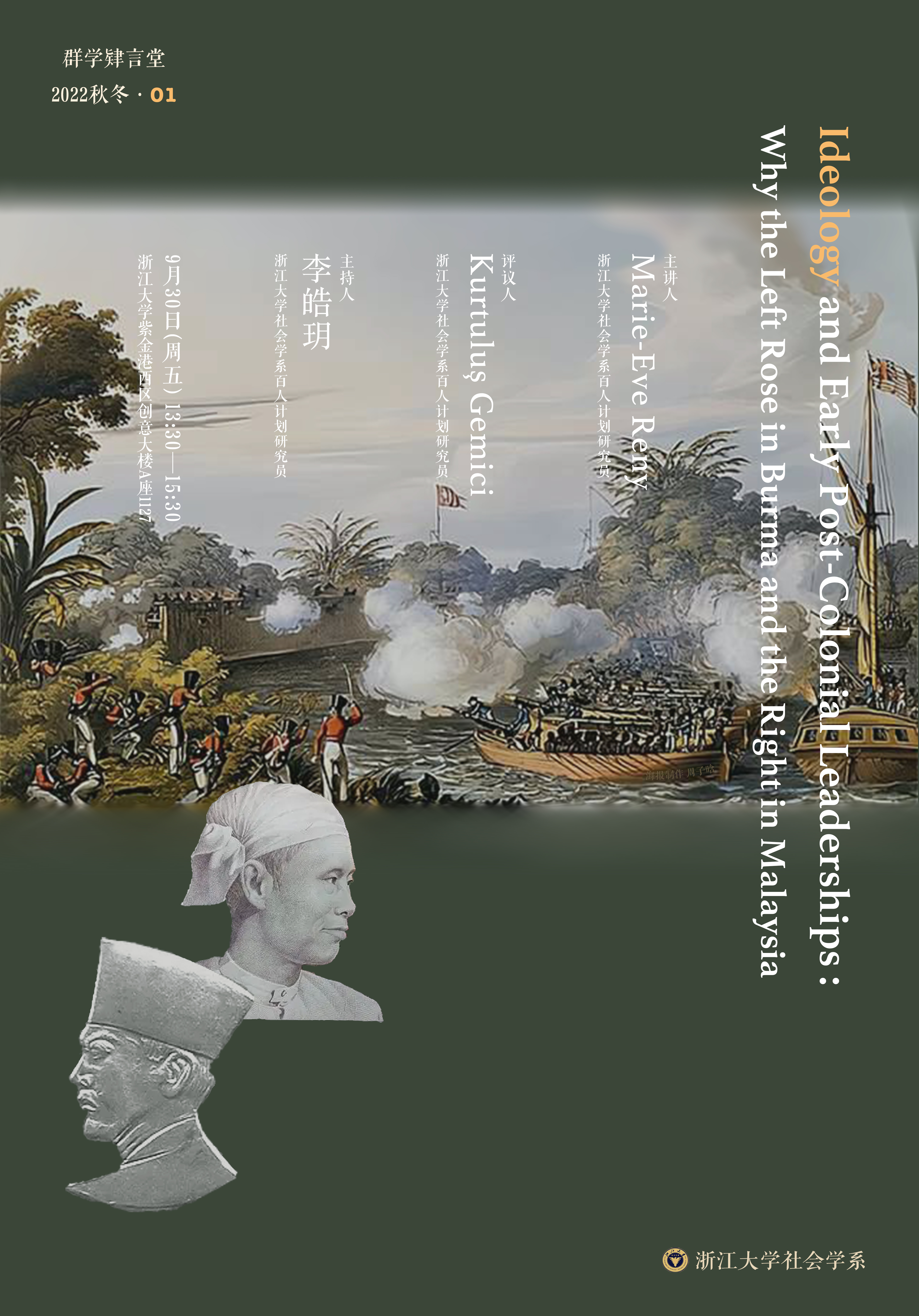
Time: 30 September 2022 (Friday) 1:30-3:30pm (Beijing Time)
Venue: Room 1127, Block A, Creative Building, Zijingang Campus, Zhejiang University
Language: English
Topic: Ideology and Early Post-Colonial Leaderships:Why the Left Rose in Burma and the Right in Malaysia
Abstract: Politics in newly independent Southeast Asian states was monopolized by elites on either left or right. The ideological turn states took was not contingent on who colonized them. Both Burma and Malaysia were former British colonies, yet early post-colonial leaders in Burma were on the left while those in Malaysia were on the right. What accounts for the dominance of the left or the right in early post-colonial politics? I argue that three factors influenced the rise of either side. First was the relative strength of anti-colonial nationalism in the colonies. Resistance to foreign rule was more common on the left than it was on the right. Where anti-colonialism was strong, as in Burma, influential indigenous parties that emerged under colonial rule were on the left. Where anti-colonialism was weak, as in Malaya, local political interests were likely to coalesce around right-wing parties. Second was the extent to which anti-colonial forces were marginalized by the colonial state before decolonization. In Burma, colonizers did not suppress anti-colonial forces effectively, thereby enabling them to rise. In Malaya, the suppression of anti-colonial forces following World War II minimized the influence of the left in politics. Third, where colonizers’ economic and geopolitical interests were significant, they were likely to sponsor the rise of indigenous elites on the right. British economic and geopolitical interests in Malaysia in the 1960s were significant, but they were much less so in Burma in the late 1940s.
Lecturer: Marie-Eve Reny, ZJU100 Young Professor, Department of Sociology, Zhejiang University
Commentator: Kurtuluş Gemici, ZJU100 Young Professor, Department of Sociology, Zhejiang University
Moderator: Haoyue Li, ZJU100 Young Professor, Department of Sociology, Zhejiang University
